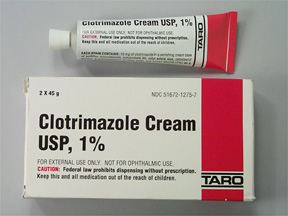
Desenex Coupons & Savings Card – Discount Prices from $5.58
Brand for: Clotrimazole
My prescription
Edit
14.2GM of 1%, Clotrimazole (1 Tube)
Select pharmacy

CVS
$19.59
COUPON PRICE
Walmart
$5.58
COUPON PRICE
Albertsons
$7.50
COUPON PRICE
Walgreens
$10.36
COUPON PRICEDesenex savings card
Show this card to your pharmacist
Walmart
$5.58
BIN
ID
PCN
GRP
019876
LH05135D55
CHIPPO
LHX
Powered by
More prescriptions for yeast infection
More prescriptions for yeast infection
Price history for Desenex (brand) & Clotrimazole (generic)
1 Tube, 14.2GM
Average retail price for Desenex
Average retail price for Clotrimazole
Average SaveHealth price for Clotrimazole
Our price history data is based on aggregated prescription data collected from participating pharmacies in America. Our prescription data updates daily to reflect the latest price changes. If you notice a missing data point, it means there wasn't sufficient data available to generate a monetary value for that date.
Over the last 12 months, the average discount price of Desenex is $14.74 using the SaveHealth savings card. That's an average savings of -91.43% on Desenex with our discount card.
*Retail prices are based on pharmacy claims data, and may not be accurate when we don't have enough claims.
Desenex (Clotrimazole) dosage forms
Dosage Quantity Price from Per unit 14.2GM 1 Tube $5.58 $5.58 14.2GM 2 Tubes $8.67 $4.33 14.2GM 3 Tubes $11.75 $3.92
| Dosage | Quantity | Price from | Per unit |
|---|---|---|---|
| 14.2GM | 1 Tube | $5.58 | $5.58 |
| 14.2GM | 2 Tubes | $8.67 | $4.33 |
| 14.2GM | 3 Tubes | $11.75 | $3.92 |
What is the drug DESENEX used for?
Desenex is used to treat fungal infections, such as athlete's foot, jock itch, and ringworm. It works by stopping the growth of fungi.
Is DESENEX the same as Miconazole?
Desenex is a brand name that can refer to different antifungal products, and one of its formulations contains miconazole as the active ingredient. Therefore, in some cases, Desenex and miconazole can be the same, but it is important to check the specific product formulation to confirm the active ingredient.
Is DESENEX good for yeast infection?
Desenex is primarily used to treat athlete's foot and other fungal skin infections, but it is not typically recommended for yeast infections. For yeast infections, especially those affecting areas like the vagina or mouth, antifungal medications specifically designed for yeast, such as fluconazole or clotrimazole, are usually more appropriate. It is advisable to consult a healthcare provider for the most suitable treatment for a yeast infection.
Is DESENEX good for toenail fungus?
Desenex is primarily used to treat athlete's foot and other fungal skin infections, but it is not typically recommended for toenail fungus. Toenail fungus often requires more targeted treatments, such as oral antifungal medications or prescription topical treatments. It is advisable to consult a healthcare professional for appropriate treatment options for toenail fungus.
Can you use Desenex for yeast infection?
Desenex is primarily used to treat athlete's foot and other fungal skin infections. For a yeast infection, particularly a vaginal yeast infection, it is recommended to use antifungal treatments specifically designed for that purpose, such as those containing miconazole or clotrimazole. It is advisable to consult a healthcare professional for appropriate treatment options for yeast infections.
